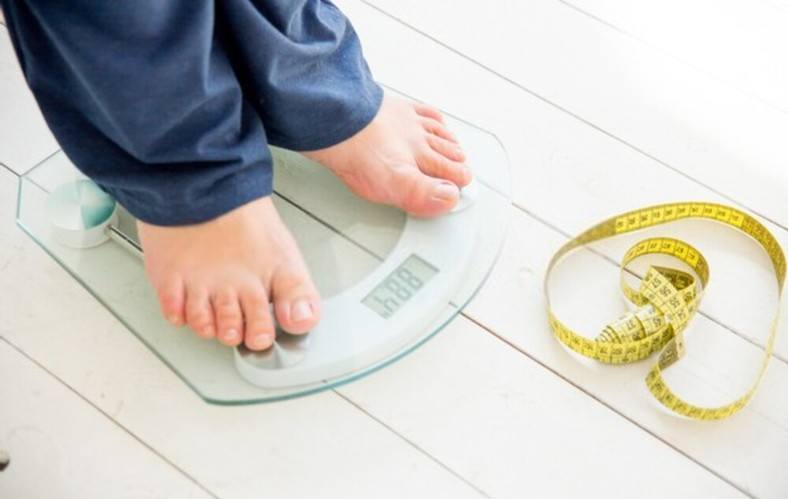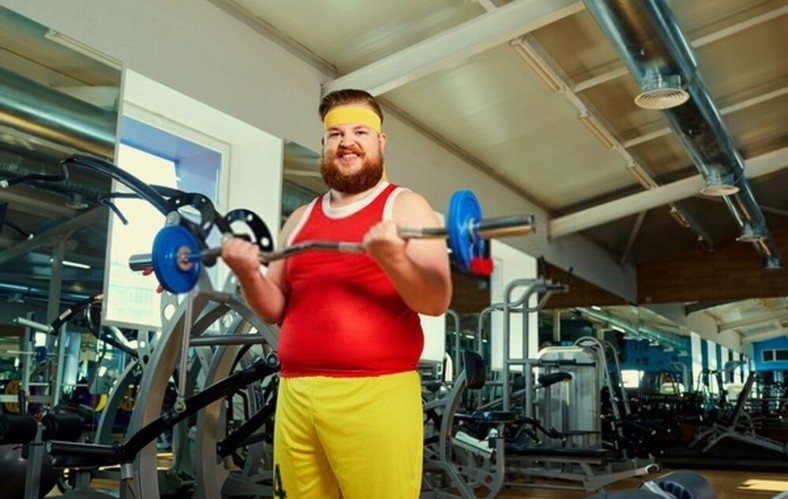Writing about the time a fat person lives without food is a lengthy process that will require research and discussion of many sources. Many different websites where you can learn new skills or knowledge from a variety of topics. We’ll talk about how long it takes for an obese person to survive?
How Long Can An Overweight Person Go Without Eating?

Overweight people tend to have a higher life expectancy than people who are considered “normal.” The average American woman has an 85% chance of living to age 80, while the average American man has an 81% chance of living to age 70. As for how long overweight people can live without food, there is no clear consensus on whether it’s feasible or not.
The longest record for going without food is 382 days. Bradford, a retired postal worker from Orange, Texas, was sponsored by a nutritionist and had a medical team monitoring his condition. By the end of the 382 days of fasting, he weighed a mere 68 kilos (150 lbs), but he was much healthier than when he started. Although an average person needs only 500 calories per day to survive, if Bradford’s story is anything to go by, much more would likely be needed for obese people to survive even two weeks without eating.
The average person could easily survive without food for two or three weeks because our body can use our stored fat as an energy source during this period. Our fat would not only meet the energy requirement for our organs (and brain) but also supply us with needed vitamins and nutrients. The starvation death usually occurs at a loss of approximately 25% of total body weight due to a combination of dehydration and malnourishment, causing a drop in basal metabolic rate, heart rate, and body temperature leading to hypothermia and hypernatremia. Since the body’s energy stores are depleted before body mass is lost, death from starvation usually takes several weeks.
However, obese people are likely to exhaust their fat reserves very quickly. As an obese person loses weight, his or her body is forced to stop using it as a source of energy and switch to other sources such as muscle mass. To survive without food, an obese person would have to continue his or her weight loss program indefinitely, which is quite unlikely even in the best case. In reality, it is unlikely that he or she can survive more than a couple of days at most, but it could last even several weeks if he or she maintains a high level of activity.
The Process of Starvation
A person’s body will die of starvation within approximately six weeks, but it can take longer if the person has body fat to live off of. An obese person will die faster than a normal weight person who is starving because they have more fat to burn. The average life span for someone dying of malnutrition or starvation is 28 days, but there are many different factors that could play into this timeframe. Starvation takes around two weeks before the body begins to starve, and it takes several weeks for your organs to begin shutting down, and irreparable damage begins in muscle tissue, which leads to death. If food or water is brought to an obese person, they can survive for up to 1 year, but after that time, the body will begin to metabolize fat.

12 Hours after Your Last Meal
After 12 hours without food, your glucose levels will dip, and you’ll feel tired and moody. You might be irritable or even start to suffer from depression and anxiety.
24 Hours
After 24 hours without food, it’s likely you’ll feel very hungry — but because of low glucose levels in the blood (hypoglycemia), you may not crave anything in particular. Instead, the body will send signals to the brain that it needs more fuel, which can cause lightheadedness. Twenty-four hours will also see your heart rate increase as the body struggles to find energy. This could cause dizziness or headaches for some people.
28 Hours
After 28 hours without food, your body will be burning fat stores for energy because all of your glucose stores are used up. You may sweat excessively as a result.
48 Hours
After 48 hours without food, you’ll begin to feel weak and lightheaded. The body’s cells may start to die because they’re not getting any energy from glucose or fat stores anymore. During this stage, it’s common to start having hallucinations.
72 Hours
After 72 hours without anything to eat, you may feel weak to the point that you’re bedridden. Some people may also experience diarrhea around this time. Your body will still be burning fat stores for energy at this stage, but these are getting depleted too.
96-120 Hours
After 96–120 hours without food, it’s likely that your heart will have stopped beating altogether as a result of organ failure. By this point, the body has already been through so much that there’s nothing left to do but wait until it finally runs out of energy as well. Your body can’t burn fat anymore. It will begin breaking down protein in muscles instead — which spells trouble if there’s not enough protein for the body to use up first. Your blood glucose levels should start returning to normal around this time, ceasing the dizziness and headaches you may have experienced earlier in the Process.
After 120 Hours
After 120 hours without food, you’ll likely be experiencing all of the symptoms listed above. You won’t be able to think clearly or move properly, and your heart will start beating irregularly. Without medical treatment, you could die from a heart attack at this stage.
On day six of no food intake, depression sets in, as can be seen with increased sleeping periods. On day 8 or 9 of no food intake, a weakness develops that leads to slurring speech at day 10 or 11 of famine. On day 12 and beyond, a person will experience extreme sleepiness and confusion in the later stages of starvation. With all of this being said, it is important to remember that starvation mode happens gradually. A person will feel weak but not completely lose consciousness until 6 or 7 days without food intake. This means that there are still 6-7 days for someone to get help before the end comes.
Starvation Psychological Effects
The psychological effects of starvation are similar to, but not the same as, the physiological effects. But here are some things to remember:
- During the earliest stages of starvation, hunger may cause you to eat items that are toxic or harmful to your health. When you feel weak and weak-minded this way, it could be difficult for you to tell what is really good for you and what is not.
- Once your metabolism slows down considerably while on a diet, it could be difficult or impossible for you to gain the weight back when you go off “diet” again. This, in combination with a lower metabolism, can cause depression to set in.
- Starving yourself is an inefficient way to lose weight. Any weight loss that does occur is likely to be regained when you go off of your diet, which can lead to frustration and depression even if you don’t overeat.
- If you lose a lot of fat cells while on a diet and then gain the weight back, it’s possible for the replacement fat cells to be larger than the ones they replaced because your body needs more energy (fat) in order to build them and operate them. This can lead to you gaining back more weight than what you lost in the first place.
- On the other hand, when you gain weight while on a diet, the fat cells will be smaller because your body is not getting enough energy to keep up with its needs. This could cause you to find yourself in a perpetual cycle of gaining and losing weight.
5 Benefits of Gaining Weight
There is a wide variety of advantages of being an overweight person. These will be listed and explained below.

Consuming Fewer Calories than an Average Person of the Same Height and Weight
The more weight you have, the easier it is to metabolize food without gaining too much fat. This translates into consuming fewer calories than people of the same age and height, making it easier for them to maintain their current weight without needing to diet or exercise continuously. The more obese someone becomes, however, the more difficult it becomes for them to completely metabolize what they eat without gaining excess pounds in addition to fat mass.
Having more Energy than Someone of Similar Height and Weight
Being overweight doesn’t necessarily mean you’re lethargic, sluggish, and an unfit athlete (unless your weight is such that extra pounds add on to your body shape significantly). There are numerous physical advantages of being overweight. One of these is the ability to have more energy than someone of the same height and weight. Being overweight allows you to pick up things off the ground easier and run for a longer time without feeling exhausted. Most people tend to be a lot more energetic at their heavier weight ranges due to having less muscle mass which usually takes out some of the pain they would normally have from jogging or working out.
Stronger Endurance

Being overweight will result in you having more endurance than someone of the same height and weight. This will give you a lot more muscle mass for carrying out activities which can be very beneficial if you’re trying to stay fit. When combined with the energy boost, it will make it easier for you to carry out activities without getting tired since your muscles won’t weigh as much as they would without extra pounds. Being overweight also gives you a lot more stamina, especially during workout sessions. You won’t have to stop every few seconds, whereas people who are not overweight would have to. This makes it easier to keep going for longer periods of time.
Having more Room on Your Joints
The more weight you have, the more difficult it is to move around. This means that the joints and their surrounding tissues and bones don’t get affected as much by excessive movements as when they do in people who don’t weigh as much. This is because the extra body mass helps cushion them from shocks and other types of violent motion that can damage them or cause injuries.
When you’re overweight, your joints use less force and therefore don’t get as much pain from working out. It’s even better if you don’t carry around an extra bunch of pounds on your joints since the extra weight will weigh down most of the muscles and therefore not push most of the force through them, which will make it harder for your joints to cope with them moving around at speed all the time.
Be able to Live off Your Fat Storage for a Very Long Period of Time If Necessary
If an overweight person goes on a hunger strike, they have the potential to live for years without food. Overweight people have larger amounts of stomach fat or adipose tissue. This being so, if he is able to survive without food for that duration (about one year), his body will then use the fat reserves to supply his energy needs. When he is through with his period of fasting, he will be able to start eating again and still be at the same weight as before fasting. His body would no longer be starving for nutrients or energy since it will still have what it needs (fat deposits) stored in it. In order to survive in a dangerous environment, it’s also possible that the obese person may out-compete other people in terms of fat storage. This might allow them to store more fat than they would otherwise be able to, so they’ll survive longer than everyone else when food runs short.
FAQs
Can you live longer without food if you are overweight?
The answer is no; it doesn’t make any difference if you are overweight or not. But the question people want to know is what specific metabolic condition prevents fat people from living as long as others.
How long can an obese person live?
Depends on how tall you are and where you store your weight. Theoretically, it’s possible for an obese person to live just as long as someone of average weight for their height, but there’s no way of proving that it occurs in nature since the only thing we have to measure lifespan with is first-hand testimony.
How long can a fat person live without water?
It depends on how fat you are. You can probably expect to lose about 30 lbs if you don’t drink water for a week. But more than that, and you’ll begin to look like the Michelin tire man and lose your mind as well. Because even though your body can last for months without food, it won’t hold out more than a couple of weeks without clean drinking water.
Do skinny people live longer?
That’s hard to say since it’s impossible to know for sure how many skinny people died of starvation, but it wouldn’t surprise me if they did. It all depends on your definition of slim.
What happens if you don’t eat for a week and only drink water?
If you don’t eat food for a week, the human body has the ability to continue to function and sustain life. A healthy person can live without food for 3-5 days. However, extreme physical and psychological changes would occur during that time period. After a week of not eating, your brain produces less of its vital neurotransmitters, such as serotonin and dopamine, which it uses to communicate with the rest of your body. Your heart rate drops, and your blood pressure drops as well. After a week, all of your organs will begin to fail, but most people give in long before then.
